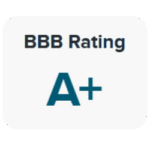What is a Deed Back Timeshare?
A deed back timeshare refers to a process through which timeshare owners can formally return their ownership interests to the resort or developer from which they originally purchased their timeshare. This relinquishing of ownership essentially terminates the owner’s responsibility regarding the property, including associated obligations such as maintenance fees and property taxes. The deed back process is an attractive option for individuals looking to relieve themselves of the complexities and financial burdens that can accompany timeshare ownership.
The concept of a deed back can vary significantly among different resorts and developers. Some establishments have structured and simplistic deed back policies, while others may impose specific conditions or restrictions. These conditions can include criteria like the timing of the deed back request, whether the owner is up to date on payments, and any required documentation that needs to be submitted. Furthermore, some resorts may charge specific fees as part of the deed back process, while others might allow it without additional charges. Consequently, it is crucial for timeshare owners to thoroughly research their specific resort’s policies before initiating a deed back process.
It is important for prospective individuals considering a deed back option to fully understand the implications. While it provides an exit strategy, entering a deed back agreement should be approached with caution. Owners must ensure they scrutinize their existing contracts and clarify any potential penalties or ramifications of relinquishing their timeshare ownership. Each situation is unique, and the availability of a deed back timeshare option may not be universal across all resorts, making it essential to seek advice when contemplating the decision.
Can You Sell a Timeshare?
When considering the timeshare ownership experience, many may find themselves contemplating whether they can sell their timeshare before resorting to a deed back process. The simple answer is yes, you can sell a timeshare; however, the feasibility and success of such a sale can be influenced by various factors. One of the primary challenges is the depreciation of the timeshare value. Unlike traditional real estate, timeshares typically begin to lose value as soon as they are purchased, making it increasingly difficult to recover initial investment costs.
Furthermore, the marketplace for timeshares can be competitive and saturated, particularly in popular vacation destinations. The demand for a resale is not as strong as the demand for new timeshares, which can complicate the process of finding a potential buyer. Buyers are often deterred by the ongoing maintenance fees, which remain a responsibility even after the purchase. This conundrum raises the question: how can owners successfully navigate the selling process to find the right buyer?
To facilitate a successful sale, it is important to properly evaluate the timeshare’s value and understand market trends. Having a clear understanding of the timeshare’s desirability in the current market can provide an edge. Pricing the timeshare competitively is paramount; this often means setting a price lower than what was initially paid. Additionally, marketing strategies play a crucial role. Utilizing online platforms dedicated to timeshare resales can enhance visibility among interested buyers. One should also consider working with a reputable timeshare resale agent, who can provide expertise and potentially expedite the selling process.
Ultimately, while selling a timeshare is indeed possible, careful consideration of various factors, including market conditions, pricing, and marketing efforts, will play a significant role in determining the likelihood of success.
Step 1: Contact the Resort
The initial phase in the deed back timeshare process involves reaching out to the resort where your timeshare is located. This step is critical as it establishes the groundwork for the procedure you are about to undertake. The first action you should take is to inquire whether the resort offers a deed back program. Many resorts have specific policies and designated programs designed to facilitate the deed back process, allowing current owners to relinquish their timeshare ownership.
When contacting the resort, ensure that you speak with a representative who is knowledgeable and authorized to discuss deed back options. During this communication, it is crucial to gather information regarding the requirements that the resort may have for eligibility. Each resort may have different criteria which could include specific timelines for requests, outstanding fees, or the condition of the property. Understanding these requirements upfront will help streamline the process and avoid potential complications later on.
Additionally, be prepared to provide detailed information about your timeshare ownership, such as the type of ownership, any associated identification numbers, and the specifics of your timeshare contract. This information is vital as it helps the resort locate your records quickly. You might also inquire about the potential fees associated with the deed back process, as this can vary widely among different resorts. Establishing clear communication with the resort not only enhances your understanding of the process but also empowers you with the knowledge needed to make informed decisions.
In summary, contacting the resort is an essential first step in the deed back timeshare process. It allows you to confirm the availability of a deed back program and to understand all eligibility requirements, which ultimately sets the stage for a smoother and more efficient experience.
Step 2: Understand the Terms
Understanding the terms of the deed back program is a crucial step in the timeshare exit process. Homeowners must carefully review the specific conditions set by the resort, as these can significantly impact the effectiveness and smoothness of the deed back process. A thorough comprehension of the terms will help owners avoid unexpected outcomes and potential financial obligations.
One of the first considerations is the potential fees associated with the deed back process. Many resorts may impose administrative fees, processing charges, or other costs related to the transaction. It is essential for owners to obtain a complete list of all potential fees before initiating the deed back. This transparency ensures homeowners can accurately assess the financial implications of relinquishing their timeshare. Ignoring these fees may lead to financial strain, particularly if these costs are not factored into the overall decision-making process.
Additionally, documenting all agreements in writing is imperative for the deed back process. Verbal agreements are often difficult to enforce and may lead to misunderstandings later. Therefore, owners should ensure that all terms, conditions, and any promises made by the resort are captured in a written format. A well-documented agreement serves as a safeguard, providing clarity and a reference point should any disputes arise in the future.
Furthermore, it is advisable for owners to seek confirmation on what exactly is expected from them during the deed back process. Understanding the responsibilities associated with the deed back can prevent any miscommunication between the owner and the resort. This might include details about returning property keys, personal items, or ensuring the timeshare is in good standing before relinquishment. Clarity in these terms is vital for a successful exit from timeshare ownership.
Legal and Financial Considerations
Before proceeding with a deed back timeshare process, it is crucial to consult with legal and financial advisors. Engaging professionals who specialize in real estate and financial matters can help you navigate the complexities surrounding the transaction. A deed back agreement may have significant ramifications for your financial health and legal standing, making expert guidance essential.
One key consideration is the potential impact on your credit score. Defaulting on a timeshare or allowing it to revert back to the developer can reflect negatively on your credit report. This could lead to a decline in your credit score, affecting your ability to secure loans or favorable interest rates in the future. Therefore, understanding the implications of this action is necessary for maintaining your financial credibility.
Additionally, tax considerations must be thoroughly evaluated. Depending on your location and specific circumstances, a deed back may result in tax benefits or liabilities. For instance, any financial assistance received or forgiveness of debt could potentially be subject to income tax. Therefore, professionals can guide you in assessing how the deed back would interact with your overall tax situation, ensuring that you remain compliant with regulations while maximizing tax advantages.
Furthermore, it is imperative to verify the legitimacy of the deed back agreement. Scams and fraudulent schemes can prey on unsuspecting timeshare owners looking to divest their property. Legal advisors can meticulously analyze the contract, ensuring that the terms are fair and legitimate. They can also assist in identifying any hidden fees or obligations that may arise from the deed back agreement, helping you make an informed decision.
In summary, taking the time to consult with legal and financial experts can prevent potential pitfalls associated with the deed back timeshare process. Their insights will help you understand the impacts on your credit, tax, and legal obligations, ultimately paving the way for a smoother transition.
Alternative Options to Consider
For timeshare owners who find that the deed back process may not be the most feasible option for their unique situations, several alternative routes can be explored. Each of these alternatives presents distinct advantages and challenges. One noteworthy program is the Capital Vacations Graceful Exit Program, which aims to assist owners in exiting their timeshare contracts with minimal hassle. This program typically helps owners relinquish their timeshares when the traditional deed back route is impractical. However, it is essential to scrutinize the program’s terms and eligibility requirements before fully committing.
Selling a timeshare is another viable alternative to consider. Owners may list their timeshare for sale on various online marketplaces or enlist the help of a broker specializing in timeshare resales. The primary advantage of selling is the potential to recover a portion of the initial investment. However, the secondary market for timeshares can be challenging, with many owners finding it difficult to sell at a competitive price due to market saturation and depreciation. Additionally, owners should be prepared for lengthy selling processes and the possibility of incurring additional fees.
Renting out the timeshare is yet another option that can generate income while also allowing for potential future use. Renting can provide a temporary financial solution to offset maintenance costs and mortgage payments. However, it requires additional work to manage bookings and can sometimes lead to complications related to property management. Owners must evaluate the risks and benefits of maintaining responsibility for the unit while also managing renters’ expectations.
In conclusion, understanding alternative options is crucial for timeshare owners seeking effective resolutions beyond the deed back process. Each alternative comes with its unique considerations, and careful analysis will greatly aid in making an informed decision that aligns with one’s financial and personal goals.
Frequently Asked Questions
As potential timeshare owners or current owners exploring the deed back process, it is common to have several queries regarding the nuances of timeshare ownership. One frequently asked question is whether timeshares can be sold back to exchange companies like RCI. Typically, these companies specialize in facilitating exchanges between timeshare owners rather than buying back timeshares. Therefore, selling your timeshare back to an exchange company is generally not an option. Instead, many owners may need to look at private sales or other avenues to divest their timeshare obligations.
Another important consideration revolves around whether selling the timeshare is the appropriate decision for individual circumstances. Each owner’s situation is unique, and factors such as financial implications, usage frequency, and long-term travel plans must be weighed carefully. Consulting with a timeshare advisor can provide insights tailored to personal needs, helping to clarify whether a deed back—or any exit strategy—is the best solution for getting out from under the financial obligations of a timeshare.
For those contemplating the ramifications of forfeiting a timeshare, it is essential to understand what doing so responsibly entails. When one decides to forfeit, it’s crucial to proceed with caution and engage with appropriate channels to ensure that all legal and financial responsibilities are managed appropriately. Responsible forfeiture typically means confirming that the timeshare company acknowledges the termination of the contract and ensuring no remaining dues or fees are left outstanding. This approach will help protect the owner from any potential liabilities in the future.
Addressing these common questions is vital for anyone navigating the complexities surrounding deed backs and timeshare ownership. Careful consideration and informed decision-making can significantly affect one’s financial and personal well-being in the long term.
How to Forfeit a Timeshare
Forfeiting a timeshare can be a complex and often daunting process. Many individuals consider ceasing payments as an easy way to relinquish their ownership; however, this approach is fraught with potential legal repercussions. Stopping payments may lead to adverse effects on credit scores, legal action from the timeshare company, and possible collections activity. Such consequences highlight the importance of understanding the proper steps to take when wanting to forfeit ownership of a timeshare.
The first step in this process is to review the terms of the timeshare agreement. This document usually includes clauses governing cancellation and the procedure for terminating ownership. Depending on the agreement, there might be specific conditions or timeframes that must be adhered to in order to effectively transfer or relinquish the timeshare. Ignoring these stipulations can result in continued financial obligations and legal liabilities that could complicate matters further.
Seeking professional guidance is highly recommended when considering forfeiture. Legal or financial experts who specialize in timeshare contracts can provide insight into potential outcomes and alternative options. They can also assist in navigating any local regulations or laws that apply to this process. Moreover, these professionals can help in negotiating with the timeshare company, which may be willing to facilitate a more favorable exit if approached appropriately.
Additionally, exploring options such as renting out the timeshare, selling it, or using a deed back program could provide beneficial alternatives to outright forfeiture. These methods can alleviate ongoing financial burdens and prevent further complications. Therefore, prior to deciding on a course of action regarding a timeshare, a thorough analysis of the situation, along with professional advice, is essential for a successful outcome.
Lone Star Conclusion
In reflecting upon the deed back timeshare process, it is essential to highlight several key aspects that can guide potential timeshare owners in making informed decisions. The process involves transferring the ownership back to the resort or developer, providing a viable option for those who may feel overwhelmed by the responsibilities tied to their timeshare. Understanding the intricacies of this process is crucial, as various regulations and steps can impact one’s financial and personal circumstances.
One of the primary takeaways is the significance of assessing one’s personal needs and financial capabilities before entering into a timeshare agreement. The allure of vacation ownership can quickly transform into a source of stress if the associated costs and commitments are not carefully considered. Engaging in a thorough evaluation of the deed back timeshare process can empower individuals to determine if relinquishing ownership aligns with their future aspirations.
Moreover, it is vital to emphasize that timeshare ownership should enrich the vacation experience rather than become a financial burden. Prospective owners should actively seek clarity about all aspects of timeshare commitments, including maintenance fees and other contract stipulations. This proactive approach not only aids in avoiding potential pitfalls but also enhances the overall enjoyment of timeshare vacations, allowing owners to focus on creating lasting memories rather than worrying about management issues.
Ultimately, the deed back timeshare process offers a path for individuals seeking relief from cumbersome vacation ownership. By fostering an understanding of the procedures involved and aligning decisions with personal goals, individuals can navigate this process effectively, ensuring their vacation experiences remain enjoyable and fulfilling.









